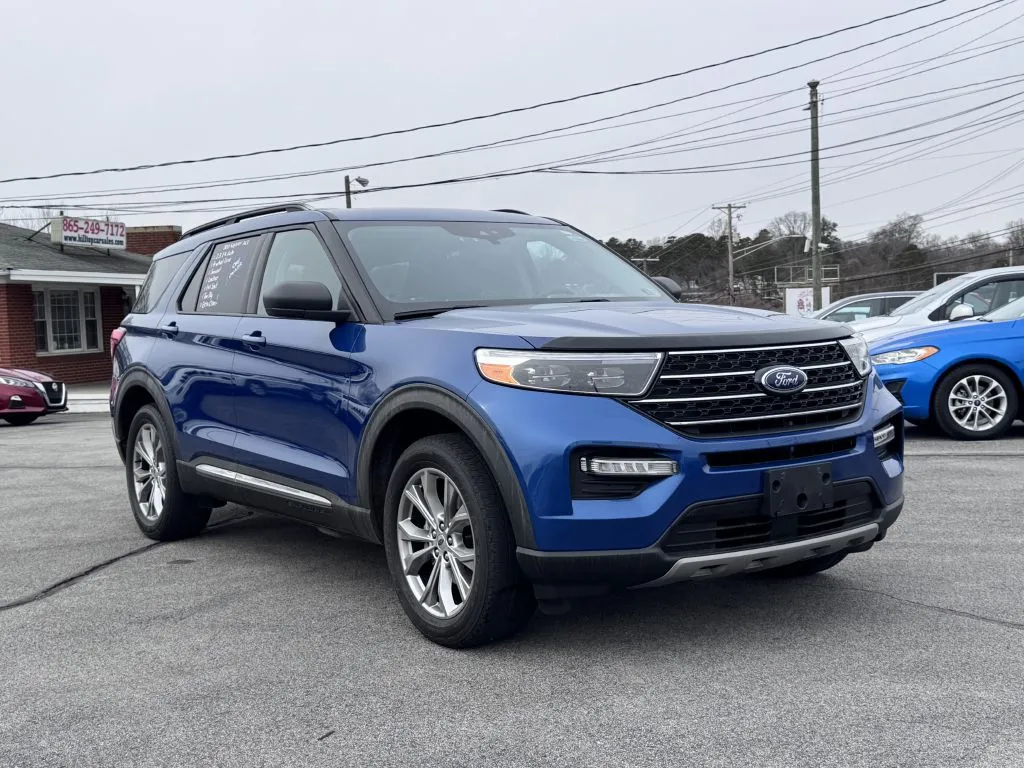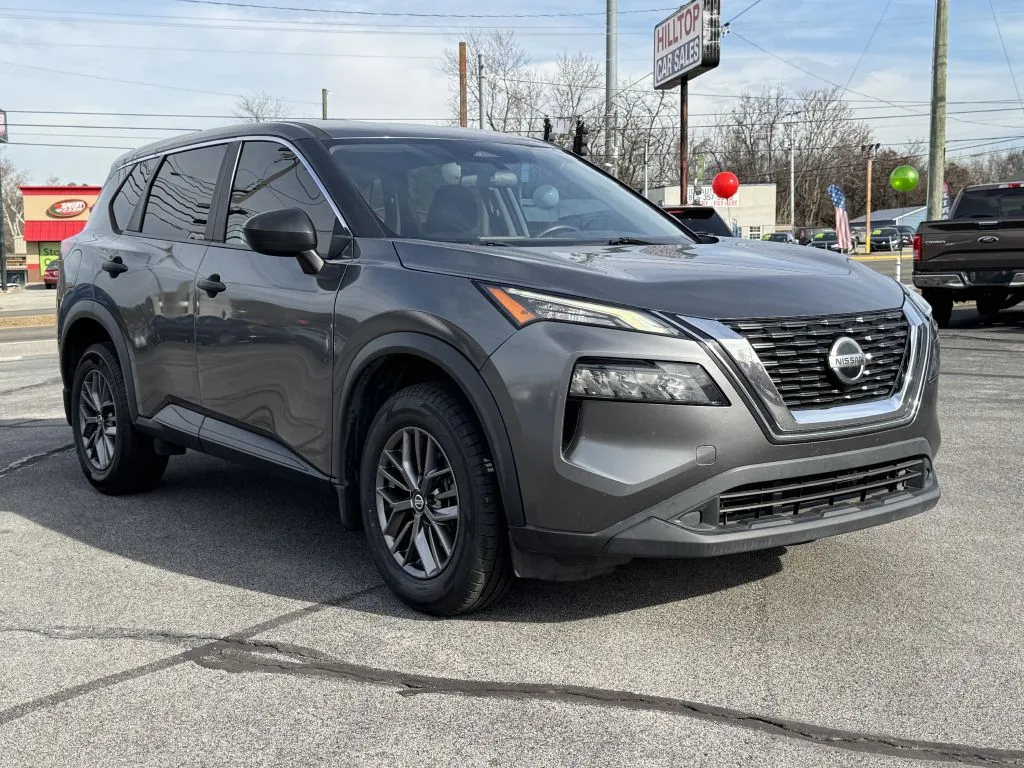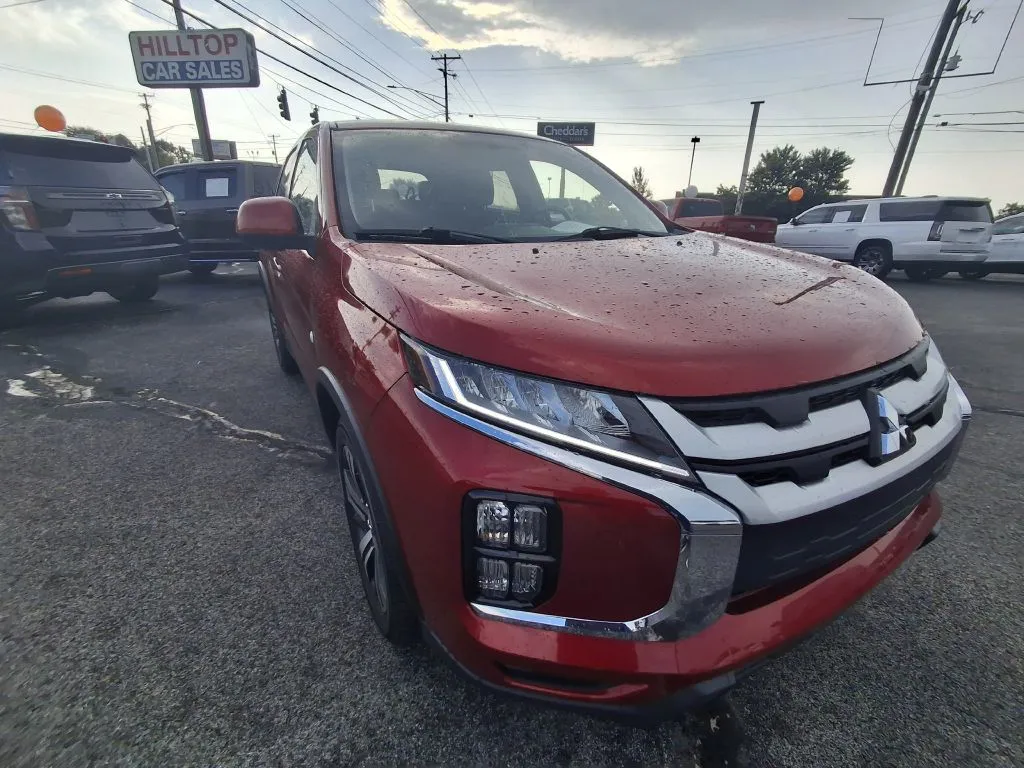Used Cars With Free Carfax Reports: Complete Guide for Buyers
Table of Contents
Used Cars With Free Carfax Reports: Complete Guide for Buyers
Shopping for a used car can feel overwhelming, especially when you're unsure about the vehicle's history.
Hidden problems, such as accidents, flood damage, or mechanical issues, can turn a good situation into a costly mistake.
Smart buyers know it's essential to get a complete picture of a car's past before making any purchase.
Most car dealerships provide free Carfax reports for their used vehicles.
Buyers can also access free reports through Carfax.com when browsing their inventory.
These reports reveal important details about previous owners, accidents, service records, and any potential red flags that might not show up during a test drive.
Knowing how to access and read these reports can save you thousands of dollars and a lot of headaches down the road.
This guide covers everything buyers need to know about finding used cars with free Carfax reports.
You'll learn what information these reports contain, how to compare different sources, and how to use vehicle history reports to make smarter decisions while shopping for a car.
Key Takeaways
- Free Carfax reports are available through dealerships and Carfax.com to help buyers make informed decisions.
- Vehicle history reports reveal accidents, ownership history, and maintenance records that impact a car's value.
- Buyers should combine Carfax information with physical inspections and professional evaluations before purchasing.
Understanding Free Carfax Reports
Carfax reports give you detailed info about a vehicle's past, like accidents, maintenance records, and ownership history.
Free and paid versions offer different levels of detail and access.
What Is a Carfax Report
A Carfax report is a document that shows a vehicle's history.
It includes info about accidents, repairs, previous owners, and maintenance records.
The report pulls data from thousands of sources, such as insurance companies, repair shops, and government agencies.
This helps create a complete picture of the car's past.
Key information in a Carfax report includes:
- Accident history
- Service records
- Number of previous owners
- Title information
- Mileage readings
- Lemon history
open recalls
Vehicle history reports help buyers understand what happened to a car before they buy it.
They can reveal problems that might not show up during a test drive.
Used Cars With Free Carfax Reports: Complete Guide for Buyers
Shopping for a used car can feel overwhelming, especially when you're unsure about the vehicle's history.
Hidden problems like accidents, flood damage, or mechanical issues can turn what seems like a great deal into a costly mistake.
Smart buyers know it's essential to get a complete picture of a car's past before making any purchase.
Most car dealerships provide free Carfax reports for their used vehicles.
Buyers can also access free reports through Carfax.com when browsing their inventory.
These reports reveal important details about previous owners, accidents, service records, and any potential red flags that might not show up during a test drive.
Knowing how to access and read these reports can save you thousands of dollars and a lot of headaches down the road.
This guide covers everything buyers need to know about finding used cars with free Carfax reports.
You'll learn what information these reports contain, how to compare different sources, and how to use vehicle history reports to make smarter decisions while shopping for a car.
Key Takeaways
- Free Carfax reports are available through dealerships and Carfax.com to help buyers make informed decisions.
- Vehicle history reports reveal accidents, ownership history, and maintenance records that impact a car's value.
- Buyers should combine Carfax information with physical inspections and professional evaluations before purchasing.
Understanding Free Carfax Reports
Key information in a Carfax report includes:
- Accident history
- Service records
- Number of previous owners
- Title information
- Mileage readings
- Lemon history
Vehicle history reports help buyers understand what happened to a car before they buy it.
They can reveal problems that might not show up during a test drive.
Difference Between Free and Paid Carfax Reports
Free Carfax reports usually give basic information about a vehicle.
Paid reports offer more detailed data and complete history records.
Free reports typically include:
- Basic accident information
- Limited service records
- Number of owners
- Basic title status
Paid reports provide:
- Complete accident details
- Full maintenance history
- Detailed title information
- More comprehensive data sources
Dealerships often provide free Carfax reports for their used cars.
Private sellers might need to buy reports or ask buyers to pay for them.
Free reports are good for basic screening.
Paid reports give buyers more confidence when making big decisions.
Why Vehicle History Reports Matter
Vehicle history reports help buyers avoid costly mistakes when shopping for used cars.
They reveal hidden problems that could end up costing thousands later.
Reports show if a car was in major accidents.
This info helps buyers spot potential safety issues or future repair costs.
They also track maintenance records.
Regular oil changes and repairs show the previous owner took care of the car.
Reports help identify:
- Flood damage (can cause electrical problems)
- Accident history (may affect safety and value)
- Title issues (could mean theft or legal problems)
- Odometer fraud (shows if mileage was rolled back)
Smart buyers check vehicle history before making offers.
This protects them from cars with serious hidden issues.
How to Find Used Cars With Free Carfax Reports
Getting a free Carfax report when buying a used car is easier than most people think.
Many dealers offer these reports at no cost, and buyers can also find them through online marketplaces or by asking private sellers.
Searching Dealer Listings
Car dealers often provide free Carfax reports as part of their sales process.
Most dealerships know buyers want to see a vehicle's history before buying.
Where to find dealer listings with free reports:
- Visit dealership websites directly
- Check certified pre-owned programs
- Look for "free vehicle history report" badges on listings
Many dealers advertise free Carfax reports right on their lot signs and websites.
This builds trust with potential buyers.
Certified pre-owned vehicles almost always come with complete vehicle history reports.
These programs require dealers to provide detailed info about each car's past.
When visiting a dealer, buyers should ask to see the Carfax report before test driving.
Most dealers will print or email the report right away.
Exploring Online Marketplaces
Carfax.com offers free vehicle history reports with every used car listing on their platform.
This makes it one of the best places to shop for used cars with complete history info.
Benefits of using Carfax listings:
- Every car includes a full history report
- No extra fees for the report
- Search filters for accident-free vehicles
- One-owner car search options
Other online marketplaces may also offer free reports.
Some partner with Carfax or similar services to provide vehicle history at no extra cost.
The Carfax mobile app also provides free reports for listed vehicles.
Buyers can search by price range, location, and vehicle history preferences.
Requesting Reports From Private Sellers
Private sellers usually don't provide Carfax reports automatically, but buyers can ask for them.
Many sellers will get a report to help sell their vehicle faster.
How to request reports from private sellers:
- Ask the seller to buy a Carfax report
- Offer to split the cost of the report
- Suggest meeting at a place with free report access
- Request the vehicle's VIN to check history yourself
Some sellers might already have a recent Carfax report from when they bought the car.
This can save time and money for both sides.
If a private seller refuses to provide or help get a vehicle history report, buyers should see this as a red flag.
Honest sellers usually want to share all available info about their vehicle.
Key Information Included in a Carfax Report
A Carfax report contains critical data about a vehicle's past that helps buyers make better decisions.
The report covers accident records, ownership changes, mileage verification, and maintenance history from thousands of sources across North America.
Accident and Damage History
The accident history section shows all reported crashes and damage events.
It includes the date of each accident, how severe it was, and whether airbags deployed.
Insurance companies and police provide most of this data.
Auto body shops also report repair work to Carfax when cars get collision damage.
The report says if the damage was minor, moderate, or severe.
Severe damage often means the car was declared a total loss or needed big repairs.
Buyers can see if the car had flood, hail, or fire damage.
These incidents can cause long-term problems that affect reliability and value.
Ownership and Title Status
This section tracks how many previous owners the car had.
It shows the dates when ownership changed and where the car was registered.
The title status reveals important legal info about the car.
Clean titles mean the vehicle has no major issues reported to state agencies.
Problem titles include salvage, flood, lemon, or rebuilt labels.
These tags stick with the car forever and lower its value a lot.
Carfax also shows if the vehicle was used as a rental, taxi, or police car.
Commercial use usually means more wear and tear than personal ownership.
Odometer Readings and Mileage
Carfax tracks odometer readings from different sources to spot mileage tampering.
The report shows readings from inspections, sales, and service visits over time.
Odometer rollback happens when someone illegally lowers the displayed mileage.
This trick makes a car look like it has less wear than it really does.
The system flags odd readings or gaps in the mileage timeline.
Multiple readings from different sources help confirm the current odometer.
Annual mileage estimates help buyers see how much the car was driven.
High-mileage cars may need more repairs and maintenance.
Service and Maintenance Records
The maintenance history section lists recorded service visits and repairs.
This info comes from dealerships, independent shops, and quick-lube places.
Regular maintenance records show responsible ownership.
Oil changes, tire rotations, and scheduled services mean the car got proper care.
Major repairs like engine or transmission work show up here too.
Multiple repairs of the same part may mean ongoing problems.
The report shows recall repairs and warranty work done on the car.
This helps buyers know what issues the manufacturer has fixed.
Decoding VINs for Effective Vehicle Research
The 17-character Vehicle Identification Number acts like a car's unique fingerprint.
It holds key details about where the car was made, its features, and its history.
You can find this code in a few standard spots on every car.
What Is a Vehicle Identification Number (VIN)
A Vehicle Identification Number (VIN) is a unique 17-character code given to every vehicle sold in the U.S. since 1981.
Each character in this code tells you something specific about the car's origins and features.
The VIN structure breaks down into three main parts:
- World Manufacturer Identifier (WMI): Characters 1-3 show the country and manufacturer.
- Vehicle Descriptor Section (VDS): Characters 4-8 detail the make, model, body style, and engine type.
- Vehicle Identifier Section (VIS): Characters 10-17 include the model year and serial number.
Character 9 is a check digit to make sure the VIN is valid.
The 10th character shows the model year with a special letter or number code.
VINs skip certain letters (I, O, Q, U, Z) and the number 0 to avoid confusion.
How VINs Power Carfax and Other Reports
Vehicle history services use the VIN as the main way to access millions of records from different sources.
When you enter a VIN into Carfax or similar services, the system searches databases from insurance companies, auto auctions, service centers, and government agencies.
The VIN links each vehicle to its complete history timeline.
This includes accident reports, service records, ownership changes, and title info.
Without the VIN, these services couldn't track a specific car's past.
Insurance companies report claims by VIN.
Service centers log maintenance visits with VIN numbers.
State agencies record title transfers and registrations using VINs.
This huge data network lets Carfax reports show details like flood damage, accidents, odometer rollbacks, and recall notices.
The VIN makes sure each report matches the exact car being researched.
Where to Locate the VIN
The most common spot for the VIN is on the dashboard at the base of the windshield on the driver's side.
You can see it from outside the car by looking through the windshield.
The driver's side door jamb sticker also shows the VIN along with other vehicle specs.
This sticker is visible when you open the driver's door.
Other VIN locations include:
- Engine block or engine compartment
- Vehicle frame inside the hood
- Trunk area near the spare tire
- Vehicle registration documents
- Insurance cards and policies
For motorcycles and ATVs, the VIN is on the frame as required by law.
The owner's manual tells you the exact spot for each vehicle type.
When buying a used car, always check that the VIN matches in all places and documents.
This helps make sure the car is authentic.
Alternatives to Carfax: Other Free Vehicle History Report Sources
Several free and low-cost alternatives to Carfax give helpful vehicle history info.
VINcheck.info offers basic reports for free, while the National Motor Vehicle Title Information System provides government-backed title data.
AutoCheck delivers comprehensive reports with different pricing than Carfax.
VINcheck.info Overview
VINcheck.info is a popular free alternative to paid vehicle history services.
The platform gives basic vehicle history reports without charging users.
Key Features:
- Free basic reports for any vehicle identification number
- Title history including salvage, flood, and lemon designations
- Accident records from insurance databases
- Theft status checks through law enforcement records
The service pulls data from multiple sources like insurance companies and auction houses.
Users can see info about previous owners and registration history.
VINcheck.info has limits compared to premium services.
Reports may not include full maintenance records or detailed accident info.
The platform works best for quick checks before buying more detailed reports.
National Motor Vehicle Title Information System (NMVTIS)
NMVTIS is the federal government's official vehicle history database. Congress created it to help prevent fraud and protect people from buying unsafe vehicles.
The database gets info from state motor vehicle agencies in all 50 states. Insurance companies and salvage yards also add data.
NMVTIS provides:
- Title information like salvage, flood, and rebuilt brands
- Odometer readings from title transfers
- Total loss records from insurance companies
- Junk and salvage data from recycling facilities
You can't go straight to NMVTIS for info. Instead, you have to use approved data providers who pull from the system.
A lot of free vehicle history sites use NMVTIS as their main source.
AutoCheck Summary and Differences
AutoCheck goes head-to-head with Carfax as a vehicle history service. Experian owns AutoCheck, so it taps into big credit and insurance databases.
AutoCheck offers:
- Free vehicle history scores from 1-100
- Detailed accident info with severity ratings
- Auction history with photos and sale prices
- Multiple owner tracking with usage types
FeatureAutoCheckCarfaxFree OptionsBasic scoreLimited reportPricingLower costHigher costData Sources500+ sources100,000+ sourcesAuction DataExtensiveLimited
AutoCheck usually costs less than Carfax for single reports. It gives you more auction details, which can help if you're curious about a car's wholesale past.
The scoring system makes it easy to size up a car quickly. Higher scores mean fewer issues, while lower ones mean you should dig deeper.
Pros and Cons of Free Carfax Reports
Free Carfax reports can be super helpful for used car shoppers, but they're not perfect. They don't give you everything you'd get from a paid version.
Advantages for Used Car Buyers
Free Carfax reports give you basic info without paying a dime. You can see accident history, title status, and odometer readings for cars you're interested in.
Key benefits include:
- No cost for basic history
- Quick way to spot big red flags
- Accident alerts if the car's been in a reported crash
- Title status so you know if it's clean
Lots of dealerships hand out free reports for their cars. Online sites like Cars.com often include them with listings.
These reports help you steer clear of cars with major problems. You can spot accidents or title issues before you even go see the car.
Limitations and Data Gaps
Free Carfax reports just don't go as deep as paid ones. Sometimes, you won't get the full story.
Common limitations include:
- Limited service records—not all maintenance shows up
- Incomplete accident data—small accidents might be missing
- Outdated info—some data isn't current
- Missing details—you'll get fewer data points
Not every accident gets reported to Carfax. If there's no police report or the repair shop doesn't send info, it won't show up.
The free reports usually leave out detailed service history. That's important for knowing how well the car was cared for.
Comparing With Paid Reports
Paid Carfax reports dig deeper than free ones. You get a much bigger picture of the car's past.
Paid reports usually include:
- Detailed service records—full maintenance history
- More accident details—extra info on incidents
- Ownership history—how many owners it's had
- Recall info—outstanding recalls and repairs
Free reports are good for quick checks on several cars. You can cross off the bad ones before paying for a full report on your favorites.
How to Evaluate a Used Car With a Free Carfax Report
A free Carfax report gives you important details about a used car's past. Still, you need to know what to ask and what to look for.
Questions to Ask the Seller or Dealer
Ask straight-up questions about any accidents listed on the Carfax. Find out how bad the damage was and what got fixed.
Key accident questions:
- What kind of accident happened?
- How much did repairs cost?
- Which parts were replaced?
- Do you have repair receipts?
Ask about the service history, too. Did they keep up with oil changes and major repairs?
Important maintenance questions:
- Why are there gaps in service records?
- What major work was done lately?
- Do you have maintenance receipts?
Ownership history matters. If the car had lots of owners, ask why.
Dealers and private sellers should explain frequent ownership changes. Was the car used for business or as a rental?
Red Flags to Look for in Reports
Accident red flags include multiple crashes or serious damage. Frame damage is especially bad news for safety and resale.
Flood damage might show up as water damage or a total loss. Flooded cars often develop electrical problems later.
Title issues that should make you pause:
- Salvage titles
- Lemon law buybacks
- Manufacturer recalls
Long gaps in service—over a year—suggest the car wasn't well cared for. Regular maintenance is key.
Ownership red flags:
- More than three previous owners
- Fleet or rental use
- Commercial history
Mileage that doesn't add up could mean odometer tampering or mistakes in the records.
Expert Tips for Making Safe Used Car Purchases
A vehicle history report is a powerful tool for negotiating price and spotting trouble. But nothing beats having a trusted mechanic check the car, too.
Using Vehicle History in Price Negotiation
Vehicle history reports give you ammo for price talks. If you see accident damage or lots of past owners, use that to argue for a lower price.
Key negotiation points:
- Past accidents or damage
- Number of owners
- Gaps in service
- Flood or fire records
Bring a printed history report to the deal. If there's an accident on record, ask for a discount—sometimes 10-20% off, depending on the damage.
Service records matter for value, too. Cars with regular maintenance are worth more. Missing oil changes or skipped inspections could mean engine trouble down the road.
Smart move: Point to specific items in the report and ask the seller to explain. If they can't, you might get a better deal.
Getting an Independent Mechanic's Inspection
Paying $100-200 for a mechanic's inspection can save you thousands. Always do this before you buy, even if the car looks spotless.
What mechanics check:
- Engine and fluids
- Brakes
- Transmission
- Electrical systems
- Suspension and steering
Most good sellers will let you get an inspection. If someone refuses, that's a red flag. It's usually best to walk away if you can't get the car checked.
Ask for a written report from the mechanic. Small stuff like worn brakes is normal, but big issues—like engine leaks or slipping transmissions—are expensive to fix.
Tip: Try to find a mechanic who knows the car's brand. They'll spot issues others might miss.
Comparing Buying From Dealers vs Private Sellers
Dealers almost always give you a free Carfax report, while private sellers usually don't. This changes what you get and what you have to do as a buyer.
Dealer-Supplied Carfax Advantages
Dealers usually post free Carfax reports with their used cars. You can see the history right away, no extra cost.
They often show these reports on their websites and in person. It helps build trust and shows they're not hiding anything.
Key dealer benefits:
- Free vehicle history reports for most cars
- Help understanding the report
- Extra paperwork like service records
- Warranty options if the history looks good
Dealers can walk you through tricky report details. They explain accidents, service gaps, and ownership history.
A lot of dealerships also have certified pre-owned programs. These cars get extra inspections and usually come with longer warranties if the Carfax is clean.
Navigating Private Party Transactions
Private sellers almost never offer free Carfax reports. Usually, you have to buy your own, and it costs about $40 per car.
This adds up if you're looking at a few different cars. Keep that in mind when budgeting.
Private seller challenges:
- No free history reports
- Little paperwork besides the title
- You do all the digging and checking
- No warranty or returns
Ask for the VIN before you go see a car. That way, you can check the Carfax in advance and save yourself a wasted trip.
Sometimes private sellers have their own Carfax from when they bought the car. Ask, but always double-check with your own report.
A few sellers might split the Carfax cost with you if you're serious. It doesn't hurt to ask.
Final Steps Before Completing Your Used Car Purchase
Wrapping up a used car deal means double-checking paperwork and being smart about payment. These steps can save you a lot of headaches later.
Double-Checking Vehicle Documentation
Always check all the paperwork before you sign anything. The title should be clear and match the seller's ID. Make sure there are no unpaid loans or liens.
Go over the vehicle history report for any red flags—accidents, floods, or other damage. Look at service records to see if the car's been cared for.
Make sure the registration is up to date. The VIN should match on the papers, dashboard, and door frame. Insurance cards show recent coverage.
Must-have documents:
- Clear title with seller's name
- Current registration
- Service and maintenance records
- Vehicle history report
- Insurance proof
Best Practices for Closing the Deal
Negotiate the total price, not just monthly payments. Get everything in writing before you sign.
Do your final walkthrough during the day. Make sure all promised repairs are done. Test everything one last time before you take the keys.
For payment, cashier's checks are safer than cash. Never wire money or use payment methods you can't trace.
Key closing steps:
- Final price agreed
- Complete inspection
- Secure payment
- Transfer ownership
Frequently Asked Questions
People have lots of questions about getting free vehicle history reports and other options besides Carfax. Most free reports come from dealerships, other report services, or basic VIN lookups.
How can I obtain a free vehicle history report for a used car?
Most dealerships will give you a free Carfax report if you ask. It's the most common way to get a full history without paying.
Ask the seller for a recent report. Many already have one from other buyers.
Some dealers offer free reports as part of their sales process. They do this to build trust.
What are reliable alternatives to Carfax for free car history reports?
A few companies offer free basic reports, like AutoCheck, VinAudit, and some government sites.
The National Insurance Crime Bureau lets you check for theft and total loss for free. It covers big stuff, but not everything.
Some state DMV websites let you see basic title or registration info. How much you get depends on the state.
Can you get a Carfax report without paying for it?
Yes, but it's tricky if you're not buying from a dealer. The best bet is to ask for one during the shopping process.
Some sellers have a recent Carfax they bought themselves. That can save you the fee.
Free VIN decoders give you basic info, but they're not a real substitute for a full Carfax. They'll show recalls, specs, and a little history.
Where can I find used cars with free accompanying vehicle history reports?
Most licensed dealerships include free Carfax reports with their cars. It's pretty standard.
Online car marketplaces often show some basic history, too. Sites like Cars.com and AutoTrader usually have accident and service info.
Certified pre-owned programs always include a vehicle history report. These cars get extra checks and come with all the right paperwork.
Is it possible to verify a used car's history using the VIN for free?
Free VIN lookup tools give you some basic info about a car. You’ll usually see manufacturing details and maybe some recall or safety data.
Government databases help a bit too, but they’re limited. The NHTSA website, for example, lets you check recalls and safety info for any VIN.
But honestly, these free tools don’t go very deep. You won’t get accident records, service history, or who owned the car before.
Are there any trustworthy websites offering a free VIN check similar to Carfax?
VinCheckPro gives you some basic vehicle history for free. You can see accident data and title info, but don’t expect a full report.
AutoCheck lets you access a few free reports through certain partner sites. Their free version’s not as thorough as the paid one, though.
Some government sites, like NHTSA and NICB, share specific vehicle data. They mostly cover safety recalls and theft records, not the whole history.












